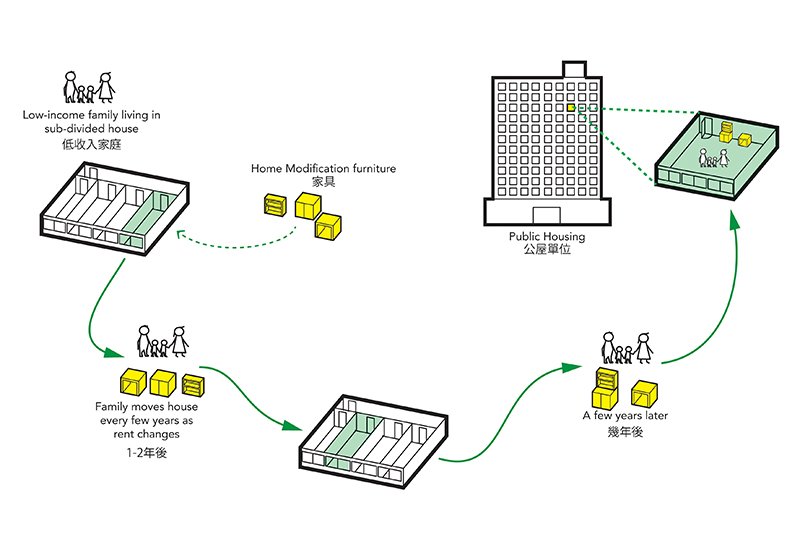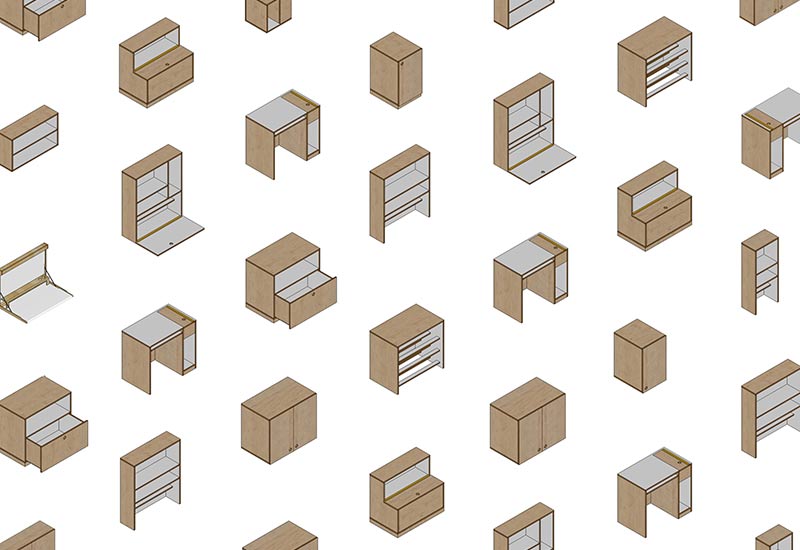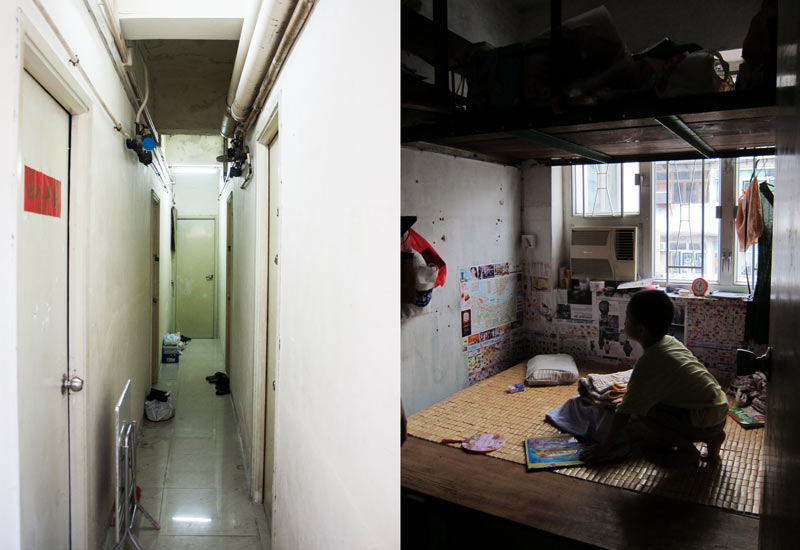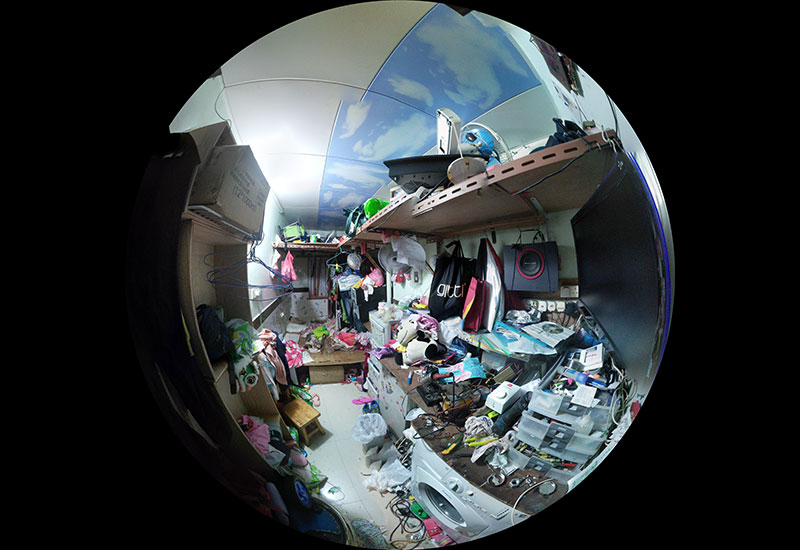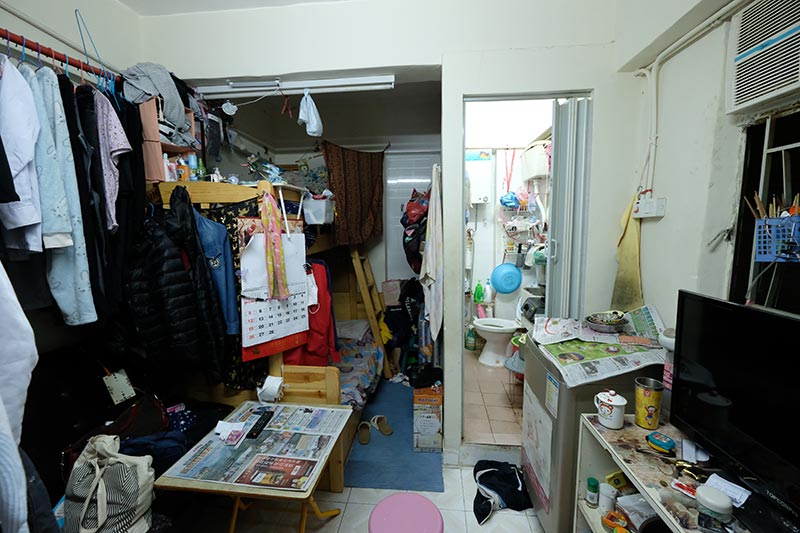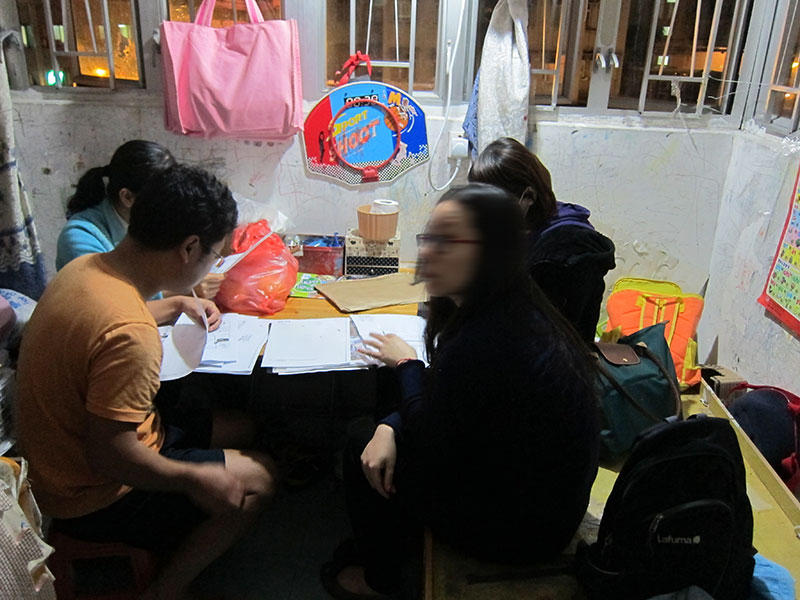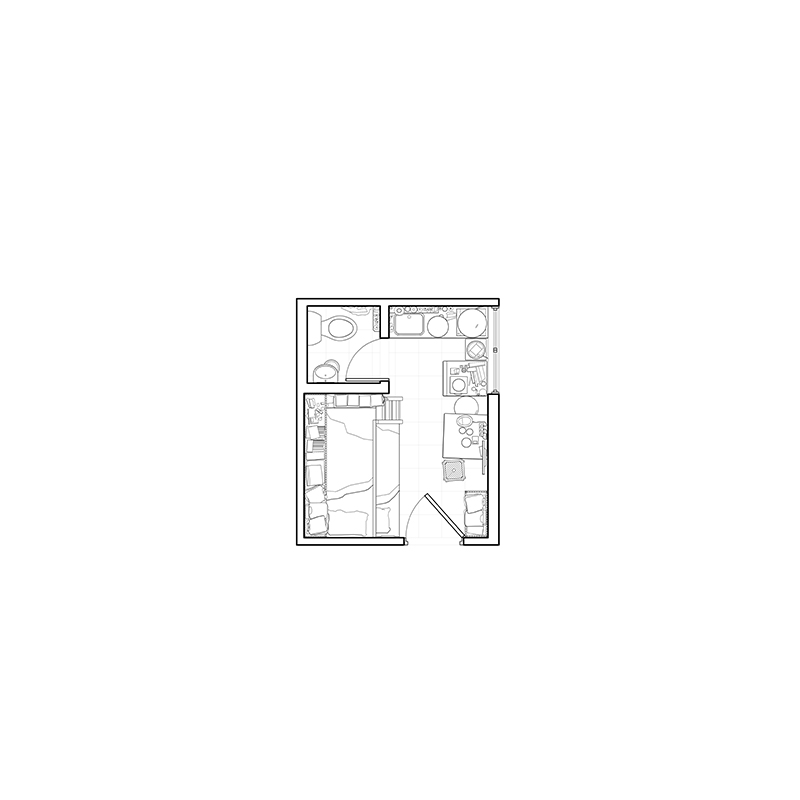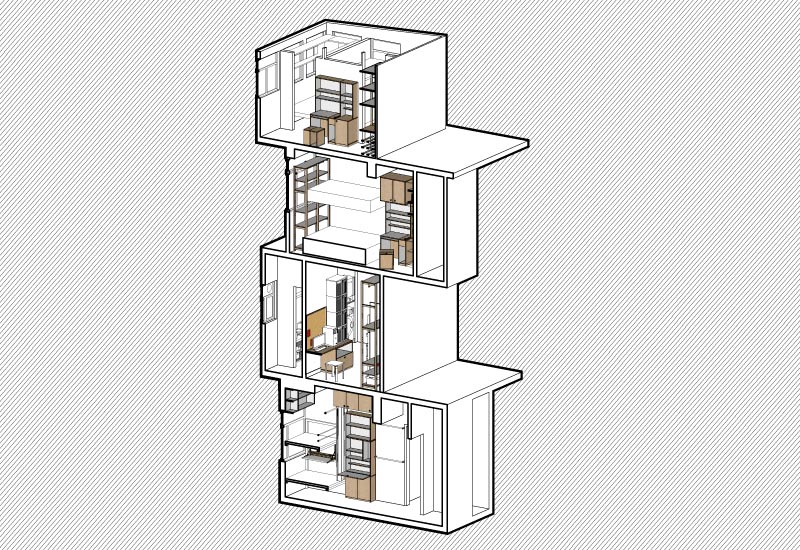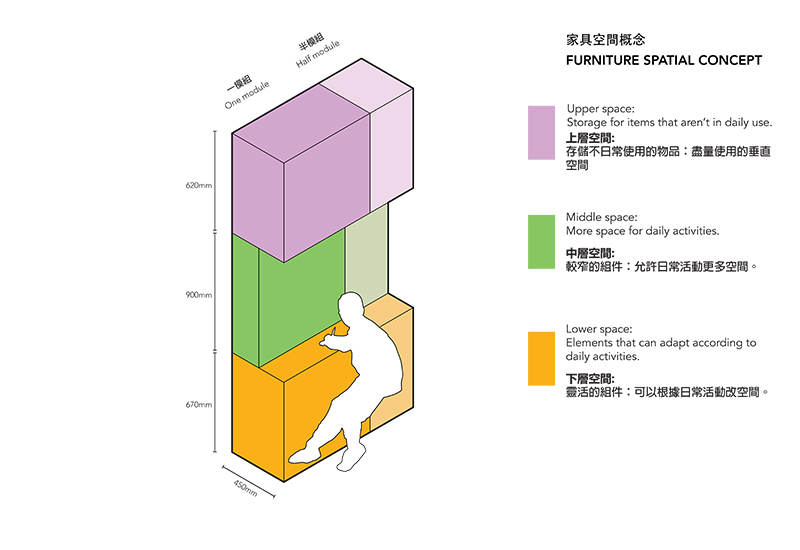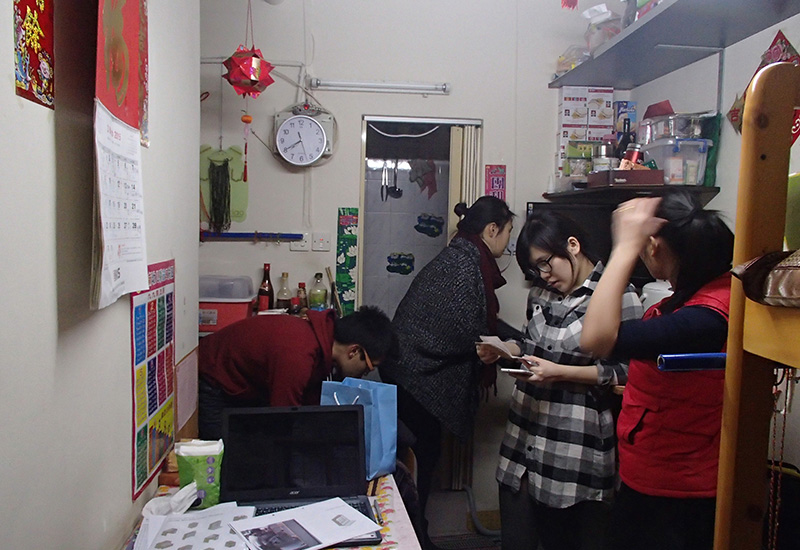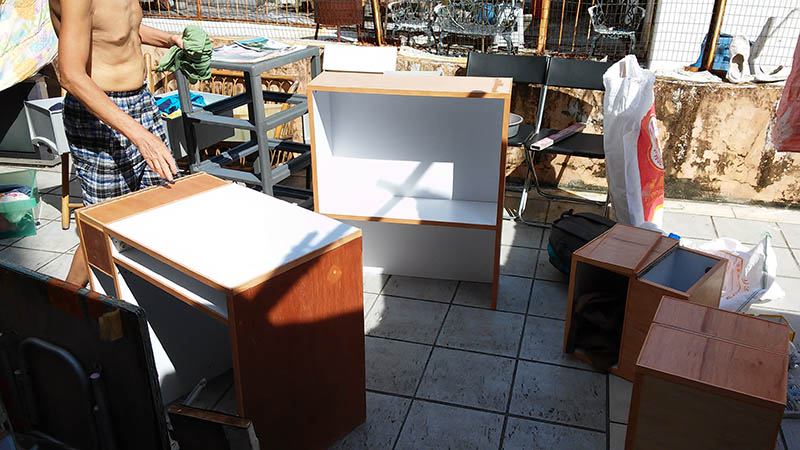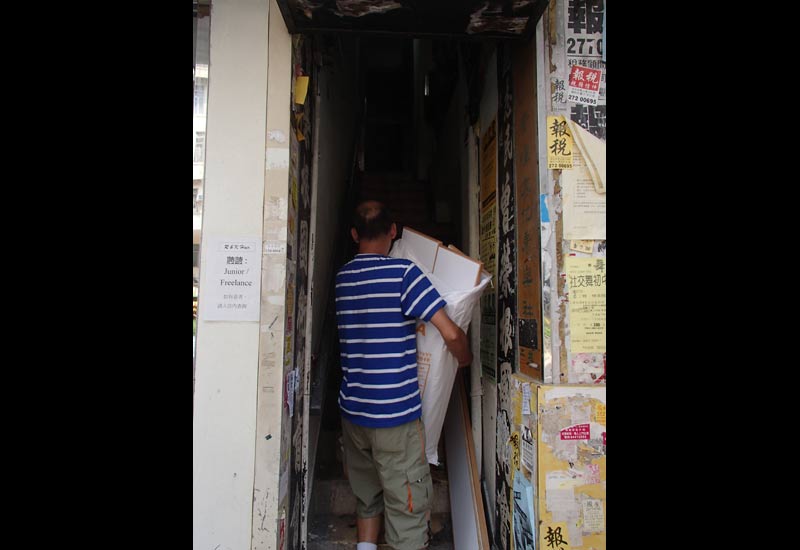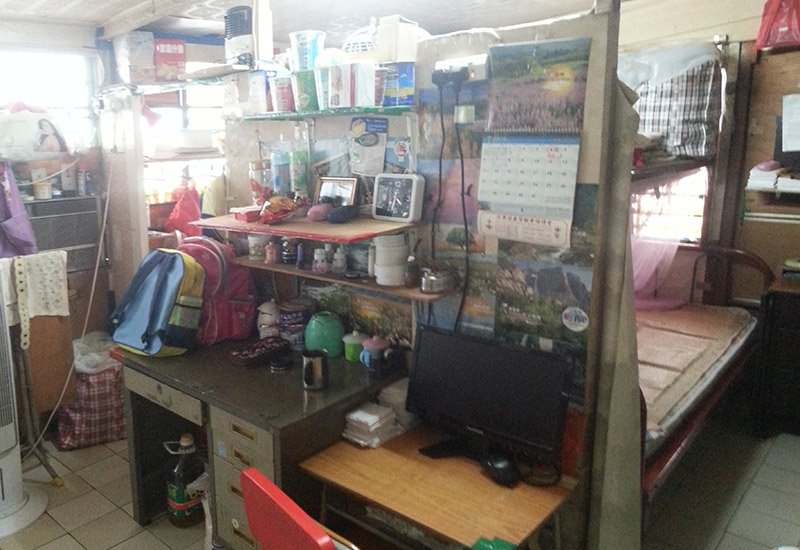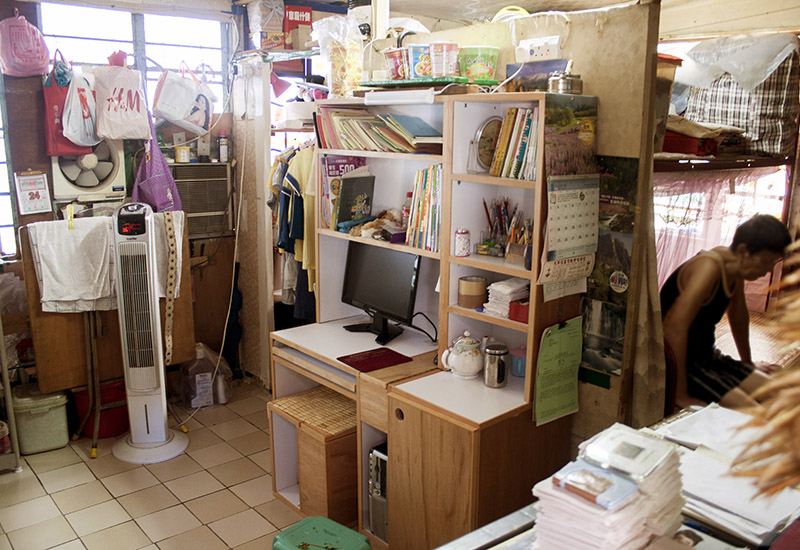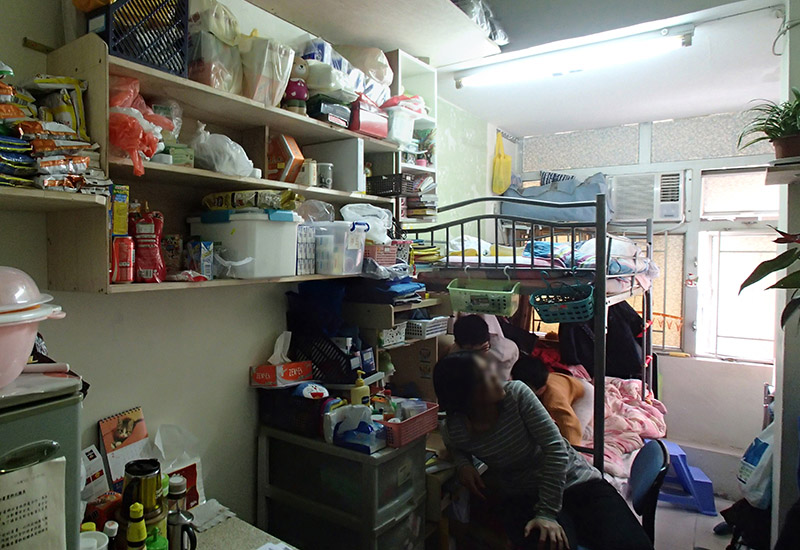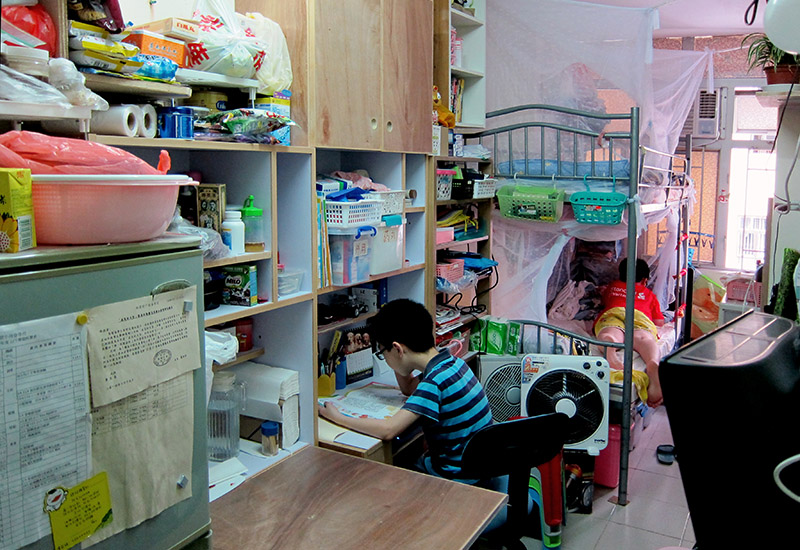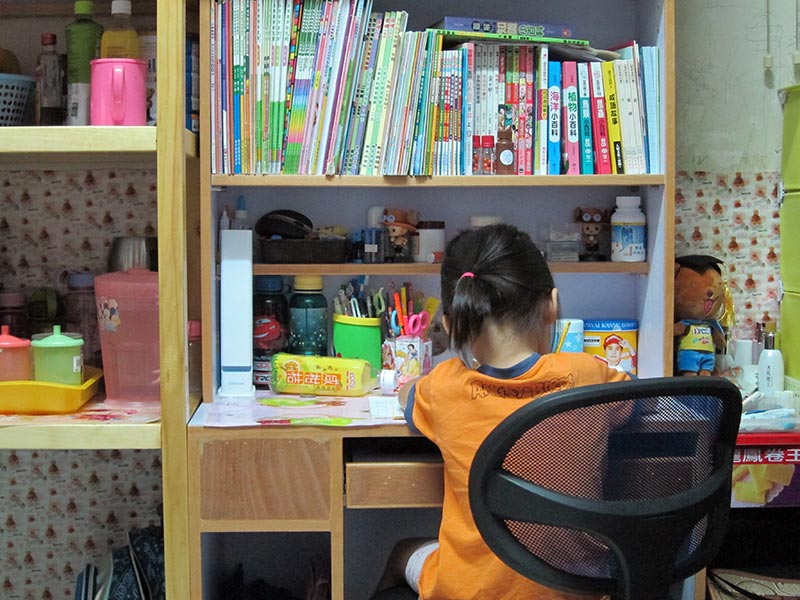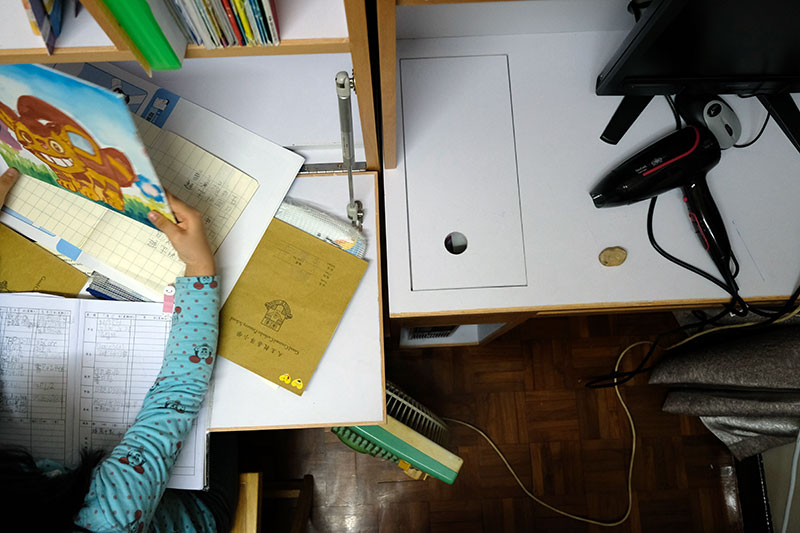Shum Shui Po, and throughout Hong Kong
As of 2013, Hong Kong was reported to reach the position of 14th most expensive city in the world to live in. At the same time, 1 in 5 people in this city are now living below the poverty line, and the disparity between the richest and poorest people is among the highest of any developed economy. Nowhere is this is this more apparent than with the current housing situation. Between the high cost private developments and public housing supply, there is little choice for affordable housing for low-income people.
With a combination of high housing prices and widening wealth gap, Hong Kong has evolved alternative forms of housing for families who cannot afford the typical market prices. These are ‘sub-divided’ houses, where landlords divide their properties into small units (often 150sq ft or less) in order to increase the rental income, and fulfil a gap in the housing market.
The conditions of subdivided houses affect the personal development of the children living there. They are more likely to suffer from poor physical and psychological health, and their homes create a bad learning environment, meaning that they may fall behind in their studies and become stuck in the poverty trap.
‘Home Modification’ programme aims at improving the living conditions of low-income families in Hong Kong. We are working towards making decent study areas for children at home, helping them to perform better at school so that the family can escape a cycle of poverty.
The homes of the families are small and crowded. In some cases a family of four or five will live in a room of 100 square-feet. Due to their poverty, many families have a habit of collecting material in the fear that they cannot afford things in the future, making the lack of space even worse. Although the families find ingenious ways to make their homes liveable by changing the use of a space throughout the day, this can be disruptive when the children are studying.
By providing appropriate furniture, the project aims at helping the families to reorganise their space better. Many of the families live in subdivided homes in old tenement buildings with high ceilings. There is potential to use the upper space in order to free up the lower living area, and create dedicated study spaces for the children.
Most families are living in transition, waiting to be allocated public housing, and moving from house to house in the meantime. Some approaches to improving living conditions, such as renovating run-down houses, or giving housing subsidies, risk the adverse effect of landlords increasing their rents, causing the low-income families to suffer more. The project is aimed to avoid a situation where the landlord ends up benefiting from the scheme more than the family. By providing furniture that the family can take with them, it is hoped that the benefit of the programme can remain with them.
The furniture is designed with a modular idea, with a simple, standardised design made from blockwood. The families can reassemble it when moving to a new house and it is durable enough to survive several years. The simple construction means that it can be adapted in the future if the needs of the family change.
To date, DOMAT has worked with over 350 families in this programme and gain experience in space creation and social understanding of the situation involved. It is not a solution to the housing problem, but hope to provide remedial measure for the transitional situation.
